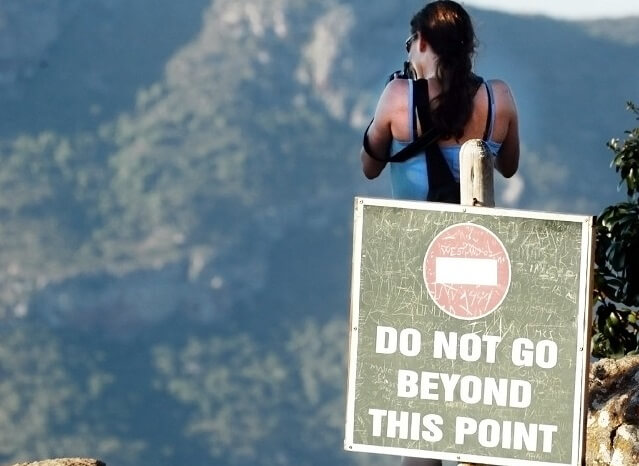By Christian Jakob (@chrjkb) is editor for the German daily taz, die tageszeitung in Berlin. With Simone Schlindwein, he co-authored Dictators as Gatekeepers for Europe: Outsourcing EU border controld to Africa, which was filmed by arte, ZDF and Deutsche Welle. Before, he initiated the website Migration Control which will be relaunched in October.
Prevention of migration to Europe, especially from Africa, was a priority of the previous Commission and, as it looks, likely to remain as such for the new Commission.
This makes it increasingly difficult for refugees to find protection. And it is becoming increasingly dangerous for migrant workers to reach places where they can seek income. But that is not the only consequence. The more Europe tries to control migration, the more difficult it becomes for many Africans to move freely within their own continent, even within their own country.
The EU investment is substantial. From the beginning of the millennium until 2015, the figure was around two billion euros. By 2020, at least another 15 billion euros will have been added. The EU will pay for the costs incurred by controlling migration itself: supplying detained refugees, jeeps or ships for the border police, deportations, reception camps. But it gives even more, in a sense as a premium: an extra portion of development aid for the coalition of the willing in matters of border protection.
Some African states, such as Tunisia, therefore make it a punishable offence to leave for Europe without papers. Some save themselves such a law and imprison migrants just like that – for example Libya. Some set up border posts where there haven’t been any so far – Sudan, for example. Some introduce biometric passports that many of their citizens cannot afford – such as the Democratic Republic of Congo, which charges 185 dollars for one of the new so-called e-passports produced by a Belgian-Arab consortium. Some take back deportees from Europe, even if they are not their own citizens – for example Morocco. Some states block migration routes with soldiers – Egypt, for example. Some allow Frontex and European Police-Officers to come and help with this – Niger, for example. And some close the borders: not only for transit migrants, but also for their own citizens if they want to enter Europe irregularly – Algeria, for example.
More and more often, the money paid in return for controlling migration is booked as Official Development Assistance (ODA). It is a misappropriation of funds that are there to alleviate poverty and hardship. It also contradicts the sense of development aid because labour migration is a blessing for poor countries. It brings money into the coffers of small traders and farmers. This mixture of development aid and migration control will increase. “Combating the root causes” is the new paradigm of development policy.
Günter Nooke, Chancellor Angela Merkel’s Africa Commissioner, had an idea on what Africa’s future could look like. In October 2018 he proposed that African states should give up parts of their territory against payment so that the EU could settle refugees there: “Perhaps one or the other African head of government is prepared to give up a piece of territorial sovereignty in exchange for a lease and allow free development there for 50 years. Migrants could be settled there in special economic zones, supported by the World Bank or the EU or individual states.” Such statements are hardly beneficial neither in the formal relationship between Europe and Africa nor in broader segments of the public on the African continent.
But the cordon sanitaire that the EU is trying to weave against undesirable migration is full of holes. The blueprint agreement with Turkey is crumbling. The number of arrivals in the Aegean islands is currently higher than at any other time since the EU-Turkey deal came into force. Boats from Libya keep leaving, arrivals in Morocco increases.
The massive political pressure that had been built up for the African states to recognise for example the EU „Laissez Passers“ – passport replacement papers that the deportation country can simply issue itself – or otherwise contribute to increasing the deportations of those obliged to leave has had only a limited effect. And last February, the African Union made it clear that it will not accept transit EU asylum camps on African soil.
Neither the transit regions nor the regions of origin will let themselves be used in the long term as reception camps or assistant EU border guards. The consequence of this is that the EU cannot solve its migration problem outside its own territory on the long run. The old Commission had consistently refused to accept this insight. The new Commission would now have the opportunity not to repeat this mistake.
Op-ed: ECRE publishes op-eds by commentators with relevant experience and expertise in the field who want to contribute to the debate on refugee rights in Europe. The views expressed are those of the author and does not necessarily reflect ECRE positions.
The ECRE Weekly Bulletin is currently featuring a number of interviews and op-eds presenting critical perspectives on the EU cooperation on migration with different African countries.
Photo: (CC): Carolina Ödman, May 2007
This article appeared in the ECRE Weekly Bulletin . You can subscribe to the Weekly Bulletin here.

